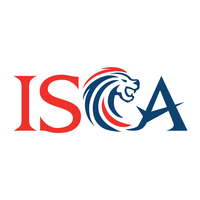Accountancy Future Leaders Programme
Facilitated Workshop
A 3.5-day workshop facilitated by experienced industry leaders, covering topics –
(i) change leadership
(ii) business strategy
(iii) people strategy
(iv) technology strategy
Programme Outlines
Change Leadership that Delivers Results
Outlines:
1) Self-Leadership & Mastering Personal Effectiveness
- Shift the focus from managing time to managing self
- Use a system of tactics & tools to appraise & align tasks strategically
- Recognise and eliminate time wasters
- Break indecision & procrastination habits
- Identify how delegation fits into your job and its exponential effectiveness
- Make goal-setting a dynamic process – short, medium & long term
- Benefits: Better understanding of self and personal goals and alignment with work mindset
2) Mastering Your Personal Brand
- Understand each of us has a brand
- That it is important to manage the brand
- Own brand and writing down the first brand statement
- The importance of practicing personal introduction and branding
- Benefits: Create and execute plan for better personal brand
3) Optimize Team Structure through the Profiles & Behavior Analysis
- Understand behavioral tests and its use in business context
- Brief introduction to Social Style – one of the various models available in the market
- Communication – an example of the use of Social Style
- High level understanding of the Myers-Briggs Type Indicators
- Application of these models
- Benefits: Use the tools of leaders to manage teams more effectively
4) Managing Stakeholders & Communication Plan
- What a PowerMap is?
- How a PowerMap is typically used?
- How to organise discussion with team using PowerMap to influence decision makers in the organisation?
- Benefits: Learn how to map power at client organisation as well as internal organisation
5) Managing Pipeline of Work
- One of the major aspects of managing demands in typical organisation
- The 4 major steps of managing the demand pipeline
- Some of the key leadership activities in managing the demands
- Mapping it to your own organisation demand process
- Benefits: Better understanding and managing of demand and delivery
6) Managing Innovation
- Ideation in the end-user IT context
- The 4 key inputs to Ideation / Innovation
- Technology Adoption Lifecycle
- Innovation Portfolio
- Benefits: Understanding the impact of innovation and how to deal with innovation as a leader of a team /organisation
Workshop Facilitator

Mr Ong Whee Teck
Whee Teck is the CEO of Trusted Services (subsidiary of Temasek Management Services). He is responsible for the sales and delivery of the full spectrum of services across Board Technology, Human Resources, Finance and Events in Singapore and beyond. Under Whee Teck's leadership, Trusted Services has created its flagship Board Portal – Board.Vision.
Prior to joining TMS, Whee Teck was the Partner in Technology Consulting responsible for the South East Asia business at PriceWaterhouseCoopers (PWC). In that capacity, he led his team in fulfilling both the sales and delivery of technology projects across multiple countries and various industries, but primarily in the Financial Services sector. Before that, Whee Teck held various strategic leadership roles at United Overseas Bank (UOB), where he managed teams of IT professionals in Wholesale Banking, Global Treasury, Risk Management, Trade & Remittance and Payment while overseeing deployment of group technology solutions.
Whee Teck is also a visual artist, based in Singapore working on a variety of mediums, his favourite being watercolour. Most of his paintings are filled with splashes of bright colours - flowers and urban landscapes are his favourite subjects.
Outlines:
- What are your major business development challenges? What steps must be taken to grow the business?
- Understanding client expectations; benchmarking; networking & referrals
- Best practices in starting, managing and growing your business advisory services, including how to build such a team
- Managing advisory systems, processes and people resources
- Pricing strategies (how to price more profitably & serve your clients better)
- How to ask the right questions of clients
- Strategic negotiation and building exceptional service
- Case study & Hands-on session
- Case study on Client Relationship Management/ Business Advisory - The facilitator will walk-through a specific industry case study to demonstrate the advisory process and how to engage with clients
- Hands-on session for participants - to develop an initial consultation with a suitable client of their choice. Participants will need to bring to the day a client’s latest annual financial statements for four years and enter them into Cashflow Story prior to day one. (An Excel spreadsheet and instruction guide will be provided.)
Hear from our workshop facilitator
Workshop Facilitator

Mark Holton
Mark Holton, FCPA, has more than 35 years’ experience as an Accountant and Tax Agent in practice. Mark is a Director of Smithink and Smithink Advisory.
Mark has developed specialised skills in corporate presentations and training with extensive experience in both private and public sector industries in Australia, New Zealand, United Kingdom and North America.
He is also a respected consultant in taxation and business management, in particular value-added services implementation and administration using key business advisory systems and software.
Mark is a lively and entertaining speaker, whether as a keynote addressing large audiences, the facilitator of a Partner Retreat or Conference, or the leader of Professional Development course. His engaging speaking style means that his audiences are always alert and entertained at his events.
Mark holds a Master of Commerce Degree as well as several post-graduate qualifications in accounting and management. He also has a Degree in Adult Education and an Advanced Diploma of Financial Planning.
Mark is a Board Member and is Honorary Treasurer of Ronald McDonald House Greater Western Sydney a role he has held for over 25 years. He is also the 15-year Founding Chairman and Director of Audit and Finance of the NSW Central Coast Academy of Sport.
| Objective | Outline |
|---|---|
| Appreciate the importance of HR strategy in contributing to business transformation | Why intentional HR strategy is important for business transformation?
|
| Determine the state of employee value proposition, as well as employee engagement in their organisation | Why do employees want to join, stay and give their best in your organisation?
|
| Apply appropriate people strategies using ISCA’s 4R Framework to address the HR challenges identified in your organisation | What people strategies can you adopt to address your HR challenges?
|
| Acquire insights and best practices to handle issues that may arise during people strategies implementation | How can you implement your people strategies effectively?
|
Hear from our workshop facilitator
Workshop Facilitator
 | William Thien
|
Objective:
- Understand the key challenges facing SMPs from technology perspective
- Learn from your peers and the expert how these challenges have been addressed
- Potential Challenges for digital transformation and how to overcome : Success stories from other SMPs who successfully made it happen
- How to make the changes stick
Outline:
- Three Challenges faced by small accounting firms
- Issue with efficiency and compliance in current manual work
- Accessibility with real time data sharing
- Scaling to an enterprise level
- Introduction to digital transformation to address the three challenges with
- Re-imagining your business
- Re-evaluating our value chain
- Re-building your organisation
- Improving efficiency and compliance with leading edge accounting software, e.g. Client Onboarding/ Proposal management
- Increasing accessibility with real time data sharing - Accounting software on cloud (e.g. Business performance dashboard)
- Scaling to an enterprise level with RPA
- Discussion and sharing: Overcoming implementation challenges and making changes stick

/infocomm/istock-1065240778-c.jpg?sfvrsn=50a9b558_2)
/audit-assurance/istock-1133945516-c.jpg?sfvrsn=d158128a_2)
/courses/istock-1222725146-c1.jpg?sfvrsn=339e8e96_2)
/leadership-personal-development/istock-1049824998-c.jpg?sfvrsn=3865afcc_12)

.jpg?sfvrsn=d4038e84_0)

/courses/istock-1140691163-c.jpg?sfvrsn=24ccc519_2)
/audit-assurance/istock-1169206203-c.jpg?sfvrsn=1d6f9b25_2)

/business-management-global-connection/istock-1167579720-c.jpg?sfvrsn=ff93f9a5_2)

/professionals/istock-845530100-c.jpg?sfvrsn=46efdedd_2)





/legal-secretarial/istock-866706340-c.jpg?sfvrsn=d7f57b8c_2)